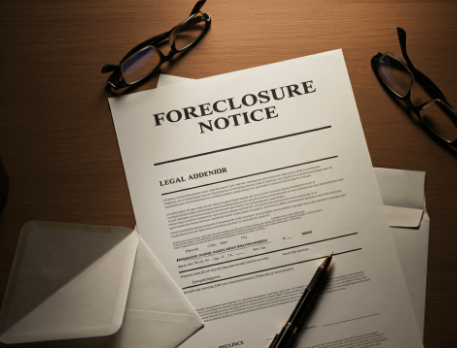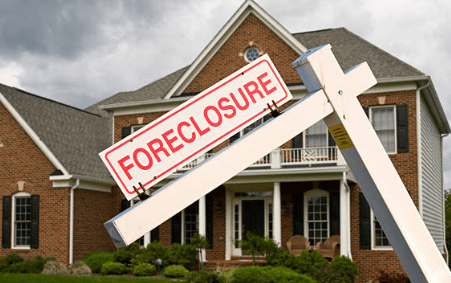When faced with financial difficulties, many homeowners wonder about the foreclosure process. Understanding how long it takes to foreclose on a house in Port Charlotte, Florida, is crucial for anyone grappling with the possibility of losing their property. This blog aims to provide clarity on the timeframe involved and the legal implications of the foreclosure process. By exploring the various stages of foreclosure, you will gain insights into how long it takes to foreclose on a house in Port Charlotte, Florida, ensuring they are well-informed during this challenging time.
Steve Daria and Joleigh, experienced real estate investors in Port Charlotte, Florida, provide valuable insights into the foreclosure timeline based on their extensive market knowledge. They emphasize the importance of understanding each stage and offer guidance for homeowners navigating this complex process. By leveraging their expertise, readers can better prepare for the potential foreclosure challenges in their area.
Understanding Foreclosure in Port Charlotte, Florida
Foreclosure is a legal procedure that allows lenders to recover the balance on a mortgage loan from a borrower who has stopped completing payments.
In Port Charlotte, Florida, foreclosure is handled through a judicial process, meaning it requires a court action.
This process can vary in length based on several factors, including the specifics of the case and the court’s schedule.

The Judicial Foreclosure Process
In Port Charlotte, the foreclosure process follows a judicial path, meaning that lenders must file a lawsuit in court to initiate foreclosure.
The process begins with the borrower’s missed payments and progresses through several stages, each influencing the overall timeline.
The Initial Steps of Foreclosure
Here are the initial steps to foreclose on a house in Port Charlotte, Florida:
Missed Payments and Notice of Default
The foreclosure procedure typically begins when a borrower misses a mortgage payment.
Initially, lenders will send a notice of default after 30 days of missed payment.
This notice warns the homeowner that foreclosure proceedings may begin if the arrears are not addressed.
Filing a Notice of Lis Pendens
If the borrower fails to resolve the missed settlements, the lender may file a Notice of Lis Pendens after three to six months of missed payments.
This legal document indicates that a foreclosure lawsuit has been filed and serves as a public record of the ongoing legal action.
Exploring Alternatives
During this initial stage, homeowners should consider alternatives to foreclosure.
Options may include loan modification, refinancing, or negotiating a repayment plan with the lender.
Exploring these alternatives can sometimes help avoid foreclosure and keep the homeowner in their property.
Get An Offer Today, Sell In A Matter Of Days
The Legal Proceedings
Once the Lis Pendens is filed, the legal foreclosure process officially begins:
Service of Foreclosure Complaint
Once the Lis Pendens is submitted, the lender will serve a foreclosure complaint to the homeowner.
The homeowner then is given 20 days to respond to the complaint.
If no response is filed, the court may set a default judgment in favor of the lender.
Contesting the Foreclosure
If the homeowner opts to contest the foreclosure, the process can become more prolonged.
The case will proceed through the court system, with hearings scheduled where both parties present their arguments.
The timeline for these proceedings can vary significantly, from a few months to over a year, depending on the case’s complexity and the court’s schedule.
Impact on Investors
For real estate investors, understanding the legal proceedings’ timeline is essential.
It provides insight into when a property might be available for purchase at auction, allowing investors to plan their investments accordingly.
The Foreclosure Auction
After the court issues a last judgment of foreclosure, the property is scheduled for auction.
Scheduling the Auction
After the court releases a final judgment of foreclosure, the property is scheduled for auction.
In Port Charlotte, Florida, foreclosure auctions typically occur 30 to 60 days after the judgment is entered.
The auction is conducted by the Clerk of the Circuit Court and is open to the public.
Bidding at the Auction
At the foreclosure auction, the property is given to the highest bidder.
Bidders should conduct thorough research and understand the terms of the sale before participating.
It’s crucial to verify any outstanding liens or encumbrances on the property, as these do not automatically clear with the foreclosure.
Investment Opportunities
For investors, attending foreclosure auctions can present opportunities to acquire properties at potentially lower prices.
However, it requires due diligence to ensure that the investment is sound and that all associated costs are accounted for.
Post-Foreclosure Process
Explore the post-foreclosure process in Port Charlotte, Florida.
Transfer of Ownership
After a property is sold at auction, a Certificate of Title is released to the new owner.
The former homeowner needs to vacate the property, and the new owner can take possession.
However, in some cases, the former owner might have the right to redeem the property if allowed by Florida law.
Addressing Remaining Obligations
New owners should ensure that all paperwork is in order and that any remaining legal obligations are met.
This includes paying any outstanding taxes or liens associated with the property.
Factors Affecting the Foreclosure Timeline
Several components can influence how long it takes to foreclose on a house in Port Charlotte:
- Homeowner’s Response: A homeowner’s decision to contest the foreclosure or engage in negotiations can extend the timeline.
- Court’s Schedule: The court’s availability and the complexity of the case can affect the longevity of legal proceedings.
- Attempts at Loan Modification: Efforts to modify the loan or reach a settlement can impact the overall timeline.
Strategies for Homeowners Facing Foreclosure
Several strategies can help homeowners facing foreclosure in Port Charlotte, Florida.
Communicate with Your Lender
It’s crucial for homeowners facing foreclosure to communicate with their lenders.
Many lenders are open to negotiating repayment plans or loan modifications to avoid foreclosure.
- Example: A homeowner might work with their lender to create a revised payment plan, potentially avoiding foreclosure and keeping their home.
Seek Professional Advice
Consulting with a real estate attorney or a HUD-approved housing counselor can provide valuable guidance through the foreclosure process.
These professionals can offer advice on potential alternatives and help navigate legal complexities.
- Example: A housing counselor might help a homeowner explore options like a short sale or deed-in-lieu of foreclosure, potentially mitigating the impact of foreclosure on their credit.

Consider Selling the Property
Selling the property prior to foreclosure can be a viable option for homeowners.
This approach allows them to pay off their mortgage debt and potentially retain some equity.
- Example: A homeowner facing foreclosure might sell their property through a short sale, enabling them to settle their mortgage and avoid the long-term consequences of foreclosure.
Tips for Investors Buying Foreclosure Properties
For real estate investors, buying foreclosed properties in Port Charlotte, Florida, can be lucrative.
However, it requires careful planning and research.
Conduct Thorough Research
Investors should conduct a thorough property inspection to assess any repairs or renovations needed.
Researching the property’s history, including outstanding liens and taxes, is also crucial.
- Example: An investor might find that a foreclosed property requires significant repairs or has unresolved legal issues affecting their investment decision.
Build Local Connections
Creating relationships with local real estate agents and attending foreclosure auctions can help investors find valuable opportunities.
Local agents can provide insights and access to properties that might not be widely advertised.
- Example: Networking with local real estate professionals might lead an investor to a promising foreclosure property before it becomes public knowledge.
Conclusion
Understanding the timeline to foreclose on a house in Port Charlotte, Florida, is essential for homeowners, buyers, and investors. By being informed about the process—from initial notices to legal proceedings and auctions—you can make better decisions and navigate the challenges of foreclosure more effectively.
**NOTICE: Please note that the content presented in this post is intended solely for informational and educational purposes. It should not be construed as legal or financial advice or relied upon as a replacement for consultation with a qualified attorney or CPA. For specific guidance on legal or financial matters, readers are encouraged to seek professional assistance from an attorney, CPA, or other appropriate professional regarding the subject matter.

